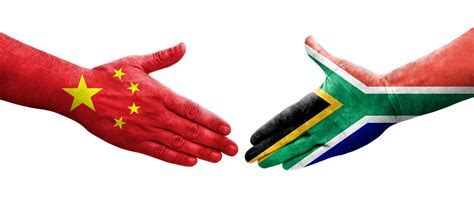Despite decades of growing bilateral ties and increased trade volume, South Africa’s Deputy President Paul Mashatile has raised concerns over a sharp and persistent trade deficit with China one that ballooned from under US$1 billion between 1988 and 2000 to US$9.71 billion in 2023, culminating in an accumulated cash outflow of US$114.83 billion since the launch of the Forum on China-Africa Cooperation (FOCAC).
As South Africa continues exporting raw minerals and agricultural goods while importing high value manufactured and capital goods from China, the structure of this trading relationship is now under scrutiny at both domestic and international levels.
Speaking at the South Africa-China Investment Forum during the China International Supply Chain Expo (CISCE) in Beijing, Deputy President Mashatile stated, “South Africa’s trade imbalance with China is mostly attributable to the nature of our trading relationship.”
He called for an urgent reassessment to foster mutual benefit and sustainable growth, emphasizing the need to shift toward value-added exports, diversify South Africa’s export portfolio, and overcome barriers to accessing the Chinese market.
Industry analysts say the gap in trade value reflects broader asymmetries common in emerging market partnerships. While Chinese investment in South Africa remains strong with US$11.69 billion in capital deployed by 48 Chinese companies in the past decade critics argue this flow must be matched with mechanisms that boost local manufacturing and promote equitable trade.
Noteworthy deals such as ICBC’s US$5.5 billion stake in Standard Bank and Hisense’s long-term presence mark significant milestones yet calls for greater balance persist.
Experts suggest that reevaluating trade terms and building strategic partnerships could benefit not only South Africa but also influence broader economic dynamics across sub-Saharan Africa.
Shared participation in multilateral platforms such as BRICS and the African Continental Free Trade Area further position both countries to collaborate on inclusive development goals.
As Mashatile affirmed, “It is through strategic trade and investment partnerships with China that we can create balance and play a significant role towards South Africa’s economic growth, job creation, and overall development.”
This evolving relationship signals a critical juncture for policy reform and regional cooperation, potentially reshaping how major economies engage with Africa’s fast-changing economic landscape.
Read Also:Empowering Hope: Mineworkers Reclaim Dignity Through Benefits – Jaina News
$2 Billion Lumwana Expansion Sparks Zambia’s Copper Revival – Jaina News
Eskom Restores 800MW as Medupi Unit 4 Returns Early – Jaina News








